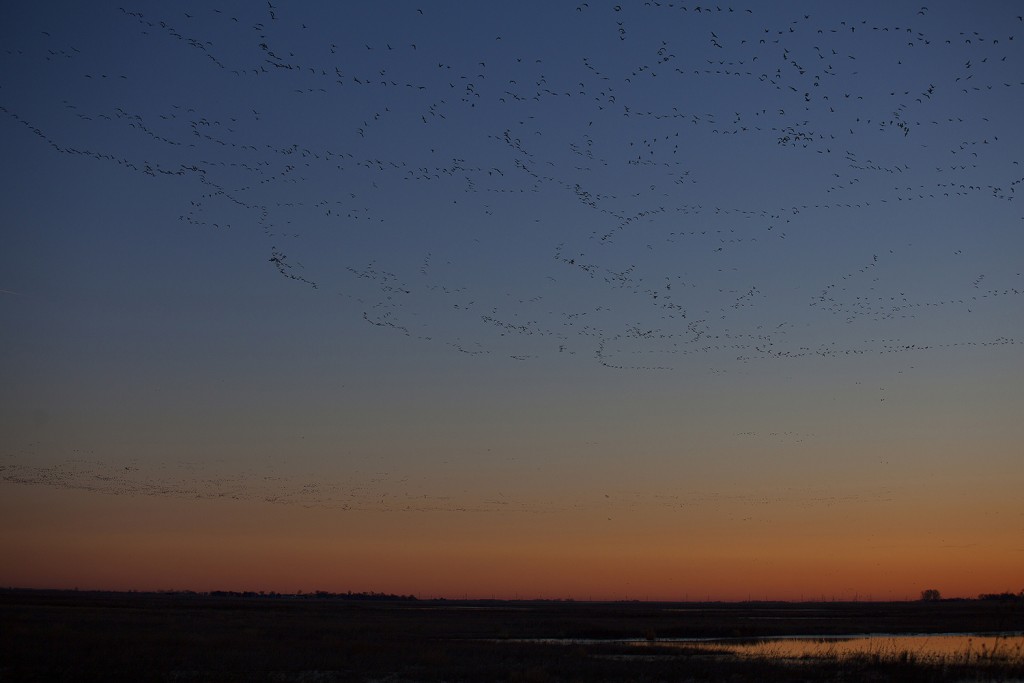A long day of watching a sky devoid of waterfowl, staring into the endless blue until my eyes burn and the muscles at the base of my neck stab me every time I turn my head. A pair of buffleheads scoot in over the decoys at eleven. A harrier kites along the shore at noon. A magpie at one. A gull at two. The whisper of the ripples eating at the shelf of ice at the head of the bay, the hours passing until the sun drops low in the west and the light gives the illusion of warmth while the breeze finds a way through to the nape of my neck, just to remind me that it’s December. As if I needed the reminder, laid out on the sand, rock hard with the frost with nothing but a double layer of burlap under me, all this interminable day.
Evening. Time to pick up. As cold as it is here on the ground, it’s not as cold as it will be out in the water, up to my waist, retrieving the decoys and winding the anchor lines as ice water runs down my sleeves. Still, it’s time to pick up. Stand up, and the blood that has pooled in my legs, losing its heat, comes back to the core and the shiver comes hard and fast. Put on another layer, then wade out into the water, thick and dark like molasses in the cold. Wrap a decoy and pitch it up on the bank. Blow on my hands to keep them working. Wrap another decoy, thirty-four of them until all the blocks I can reach without going over my waders are up on the beach.
I walk down the shore and over the point to where I hid the boat, and the exercise quells the shivering. The motor— the old five-and-a-half Johnson that was my dad’s— starts on the first pull, a minor blessing, and I run back around the point, slowing to an idle, then killing the motor as I reach the first of the goose decoys, the ones on twenty-foot anchor lines so I can get them out where they can be seen by a passing flock on the main lake. Five passes to get them all in the boat and another ten minutes to get the lines wound up so they don’t tangle. Back to shore to pick up the shells. Then bag the spread, case the unused gun, load everything in the little boat until there’s barely room for my feet, push off, and haul myself in one more time.
As I point the boat east down the reservoir, my eye catches the movement I’ve watched for all day— a line of mallards, high, so high, against the deepening blue of the evening sky. And another. And another. I follow the procession back toward the horizon, and as far as I can see, the tracery of mallard flocks shivers in the wind, black lace against the indigo of space until the patterns fade in the distance. And they keep coming. For half an hour as the old Johnson pushes me toward home, the formations pass to the west.
There was a time in my waterfowling career when I would have taken this hard. Were the old Greeks right? Do the gods make sport of men just to amuse themselves? There was a time I thought so and cussed the fates that so often make light of our best efforts, but slowly, over the years out on the water, I’ve absorbed the hard lesson, the discipline of patience. And now, on the other side of patience, there’s another lesson waiting. This was a day that had not given me what I’d come for. It had given me something else instead.
Many years ago, my grandmother told me I shouldn’t look a gift horse in the mouth. It’s taken me this long to realize how right she was.

Leave a Reply
You must be logged in to post a comment.